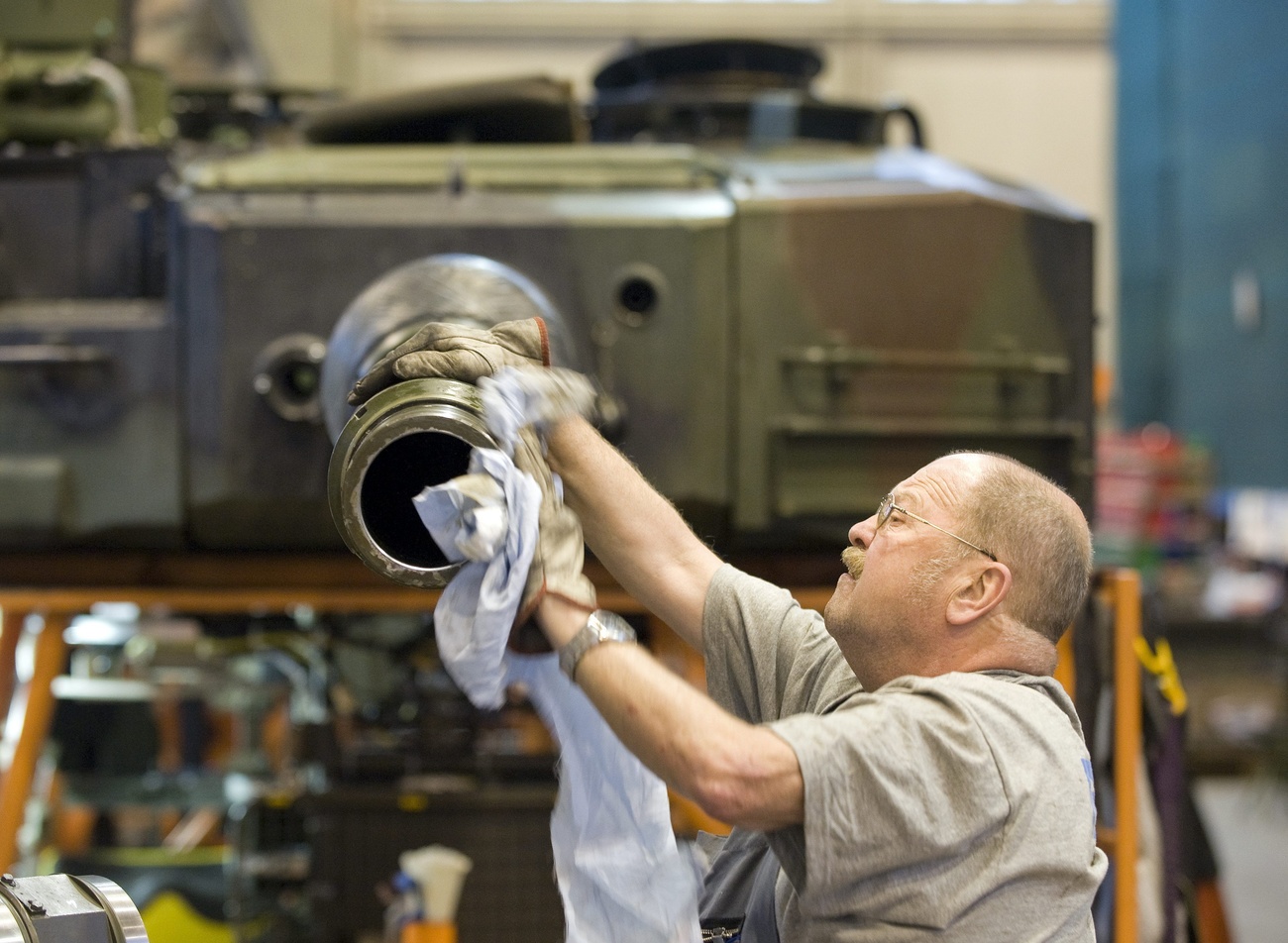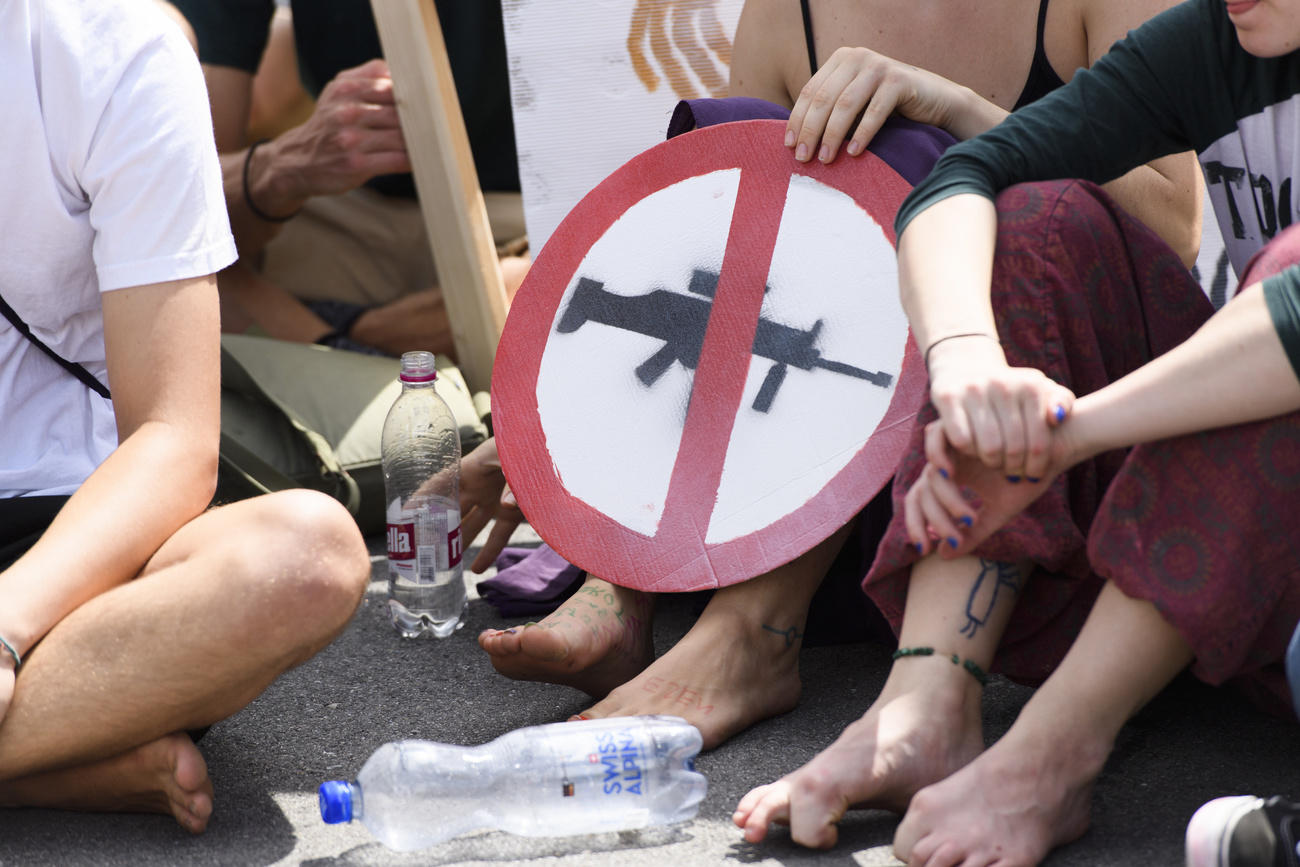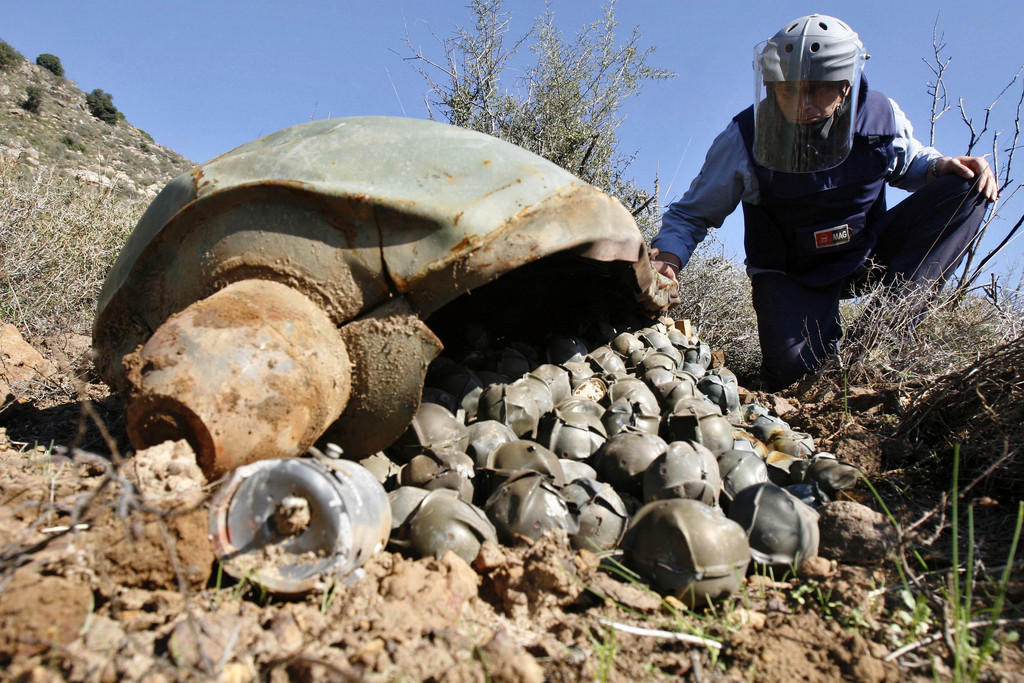Proposed investment ban targets armament industry

Voters will decide next month on a left-wing proposal to ban investments by the Swiss National Bank, pension funds and private foundations in weapons manufacturing companies.
The initiative also wants the Swiss government to push for an international agreement that would impose similar funding restrictions on the banking and insurance industry.
The proposed tightening of regulations on the financing of providers of war materiel comes in the context of debates about ethical investment strategies.
Voters will decide on the constitutional amendment on November 29 alongside one other issue – a plan to impose corporate responsibility rules on Swiss multinational companies.
The people’s initiative launched by the youth wing of the Green Party and the pacifist Switzerland Without an Army group wants to ban Swiss financial investments in producers of so-called conventional war materiel.
Any form of financial support, including offering credit to or buying shares and bonds in a weapons producing company would be declared illegal.
Manufacturers of dual-use material are not affected by the planned ban. Only companies which generate more than 5% of their annual turnover from the production of war material, including tanks, guns, fighter jets and components, are targeted.
Investment and trade in biological, chemical and nuclear weapons as well as anti-personnel mines and cluster ammunition is already outlawed in Switzerland.
If accepted by voters, then the Swiss National Bank, the state-run old age and disability insurance scheme as well as the more than 1,500 occupational pension funds would have to review their investment portfolios.
In total, these institutions managed CHF1.77 trillion ($1.93 trillion) in assets at the end of last year, according to figures by the Swiss government. But it’s not clear to what precise extent the domestic or foreign armament industry has benefited from Swiss investment.
Supporters argue the financial capital helps to fuel armed conflicts around the world – running against Switzerland’s image as a country promoting humanitarian efforts.
They also point out a perceived contradiction in Switzerland’s role as neutral diplomatic mediator.
The initiative is seen as a move towards increased transparency of the Swiss banking industry and sustainable investment.
However, opponents say the pacifist initiative is detrimental for business, notably limiting the investment policy of the Swiss central bank and the pension funds.
They are concerned that major weapons producers as well as small- and medium-sized companies in Switzerland supplying components for the armament industry would lose out.
Opponents also described the initiative as an attack against the Swiss army.

More
Responsible business initiative enjoys solid support
In 2018, the campaigners handed in enough signatures – at least 100,000 collected within a period of 18 months – to force a nationwide vote on the issue.
It will take both a majority of voters and a majority of the country’s 26 cantons for the initiative to pass at the ballot box.
Under the Swiss system of direct democracy, approval of a people’s initiative leads to a change in the country’s constitution, prompting a series of legal amendments to be decided by parliament at a later stage.
Left-wing parties, including the Social Democrats and the Greens, are the main supporters of the initiative. Various pacifist and human rights groups have also come out in favour.
The government and the majority of parliament, including all the main parties from the centre to the political right recommend rejection of the initiative. The business community, notably the banking and insurance sector and the engineering industry, are also among the opponents.

More
How do Swiss arms end up in conflict zones?
The Switzerland Without an Army group is also behind a separate initiative seeking a ban on weapons exports to countries involved in an armed conflict or countries with histories of systemic human rights violations. A date for that vote is still to be set.
In 2009, Swiss voters overwhelmingly threw out a similar initiative by the same NGO.
The pacifists have been the driving force behind several nationwide votes over the past 30 years on the country’s armed forces, including the purchase of fighter jets and gun control.

In compliance with the JTI standards
More: SWI swissinfo.ch certified by the Journalism Trust Initiative











You can find an overview of ongoing debates with our journalists here . Please join us!
If you want to start a conversation about a topic raised in this article or want to report factual errors, email us at english@swissinfo.ch.